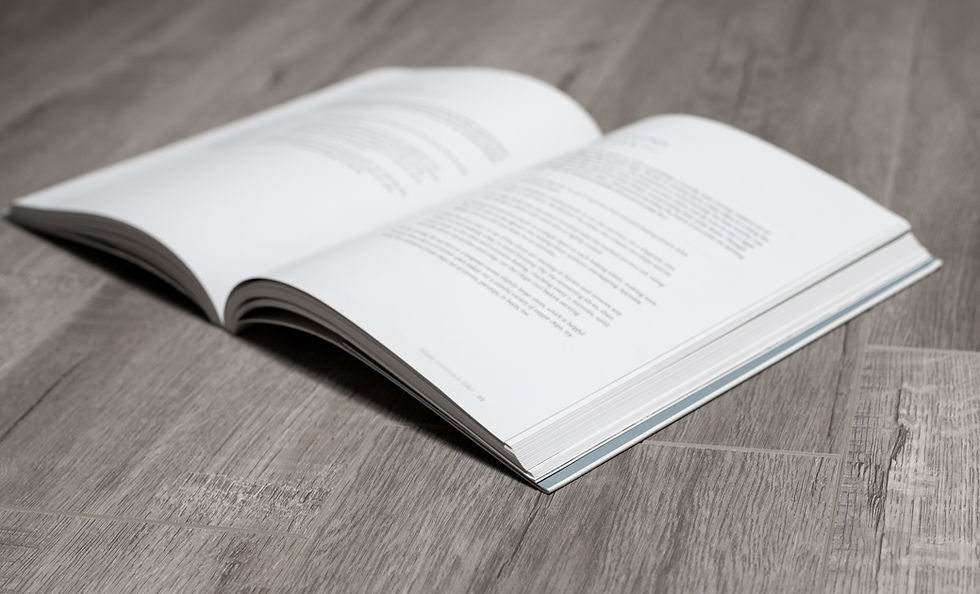Does Paver Sealer Harden Sand? Unveiling the Efficacy and Importance of Paver Sealing in Port Saint
- Darren Pohl

- May 12, 2023
- 3 min read
Introduction: Unearthing the World of Pavers and Sealers In the realm of home improvement and exterior decor, pavers have carved their niche. From driveways to patios, they lend an elegant touch to our outdoor spaces. But the role of paver sealer, particularly its impact on the sand between pavers, remains shrouded in mystery for many. Does paver sealer harden sand? Let’s delve into the depths of this intriguing query.
Understanding the Anatomy of Pavers
1. What are Pavers?
Pavers, or paving stones, are robust and versatile blocks used to create outdoor hardscapes. They come in a plethora of materials, including concrete, brick, and natural stone, each offering unique aesthetic and functional benefits.
2. The Role of Sand in Paver Installation
Sand plays a pivotal role in paver installation, acting as a cushioning layer and facilitating proper drainage. Additionally, joint sand is crucial for interlocking pavers, providing stability and preventing shifting.
Demystifying Paver Sealer
1. Paver Sealer: The Invisible Guardian
A paver sealer is a protective layer applied over pavers. Its primary function is to shield the pavers from external elements, thereby prolonging their lifespan and preserving their aesthetic appeal.
2. Varieties of Paver Sealer
Paver sealers are available in different types, each with its pros and cons. These range from water-based sealers, favored for their eco-friendly properties, to solvent-based variants known for their impressive longevity.
Does Paver Sealer Harden Sand? The Big Reveal
1. The Impact of Paver Sealer on Sand
So, does paver sealer harden sand? Indeed, it does! Certain types of paver sealers, known as joint stabilizing sealers, have the unique ability to harden joint sand, creating a solid surface that resists weed growth, insect infestation, and erosion.
2. Benefits of Hardened Sand
When the sand hardens, it significantly enhances the stability of the paver system, making it more robust and less prone to shifting. It also simplifies maintenance and prolongs the lifespan of the pavers. Professional Paver Sealing: Clean Master Exterior Services
1. Clean Master Exterior Services: Your Paver Sealing Experts
Operating in Port Saint Lucie, Palm City, Stuart, Jupiter, Vero Beach, and Jensen Beach, Clean Master Exterior Services is a trusted name in professional paver sealing. Our expertise spans over several years, assuring you of quality service and exceptional results.
2. The Clean Master Process
Our comprehensive process begins with an in-depth inspection, followed by thorough cleaning to ensure optimal sealer application. The sealer is then meticulously applied, ensuring the sand in the joints is well-saturated to harden effectively.
3. Why Choose Clean Master Exterior Services?
Choosing us means entrusting your pavers to professionals who prioritize your satisfaction. We use premium sealants that not only harden sand but also enhance the aesthetics of your pavers.
Conclusion: Paver Sealer – A Vital Ingredient for Durable and Attractive Pavers
In conclusion, not only does paver sealer harden sand, but it also plays a critical role in maintaining the appearance and durability of your pavers. With professional paver sealing services like Clean Master Exterior Services, you can rest assured that your outdoor spaces will stand the test of time.
FAQs
1. How often should I seal my pavers?
The frequency of paver sealing depends on various factors, including the type of pavers, the sealer used, and the weather conditions in your area. Typically, it's recommended to seal pavers every 3-5 years. However, consulting with professionals like Clean Master Exterior Services can provide a more precise timeline.
2. Can I apply paver sealer myself?
While it's possible to undertake a DIY paver sealing project, it's often best left to professionals. This ensures the correct type of sealer is used and applied properly. Incorrect application can lead to issues such as hazing or incomplete hardening of the sand.
3. Is paver sealing necessary?
Absolutely! Paver sealing helps protect your pavers from the elements, prevents staining, enhances their color, and hardens the sand between them. This not only maintains their aesthetic appeal but also extends their lifespan.
4. What happens if it rains after sealing pavers?
Rain can disrupt the curing process of the sealer. It's recommended to seal pavers when there's no rain forecasted for at least 24 hours post-application. If it does rain unexpectedly, contact professionals like Clean Master Exterior Services for advice.
5. Can I walk on my pavers immediately after they've been sealed?
While the surface may dry within a few hours of sealing, it's best to wait at least 24 hours before walking on freshly sealed pavers. This allows the sealer to cure properly and ensures optimum results.
Navigating the world of pavers and sealers can seem complex, but professional services like Clean Master Exterior Services are here to guide you. With our expertise, we can help transform your outdoor spaces into stunning, durable landscapes.
%20(1).png)

Comments